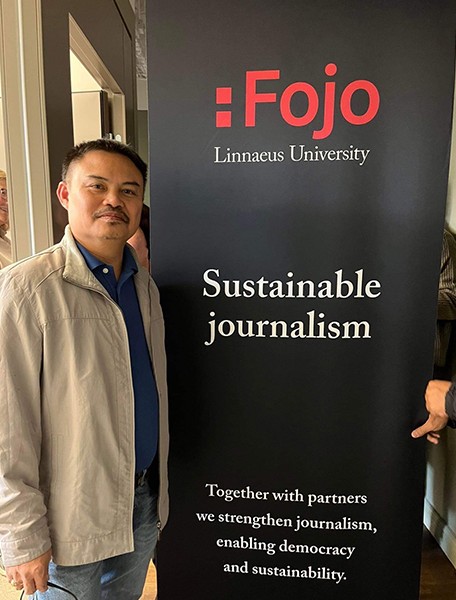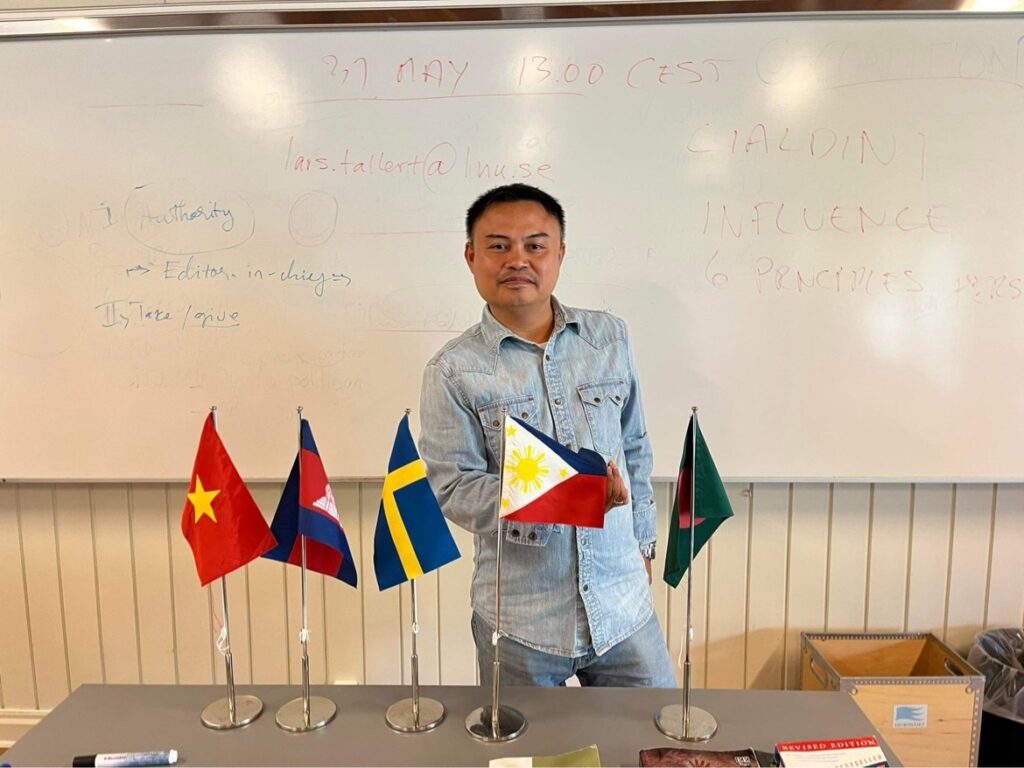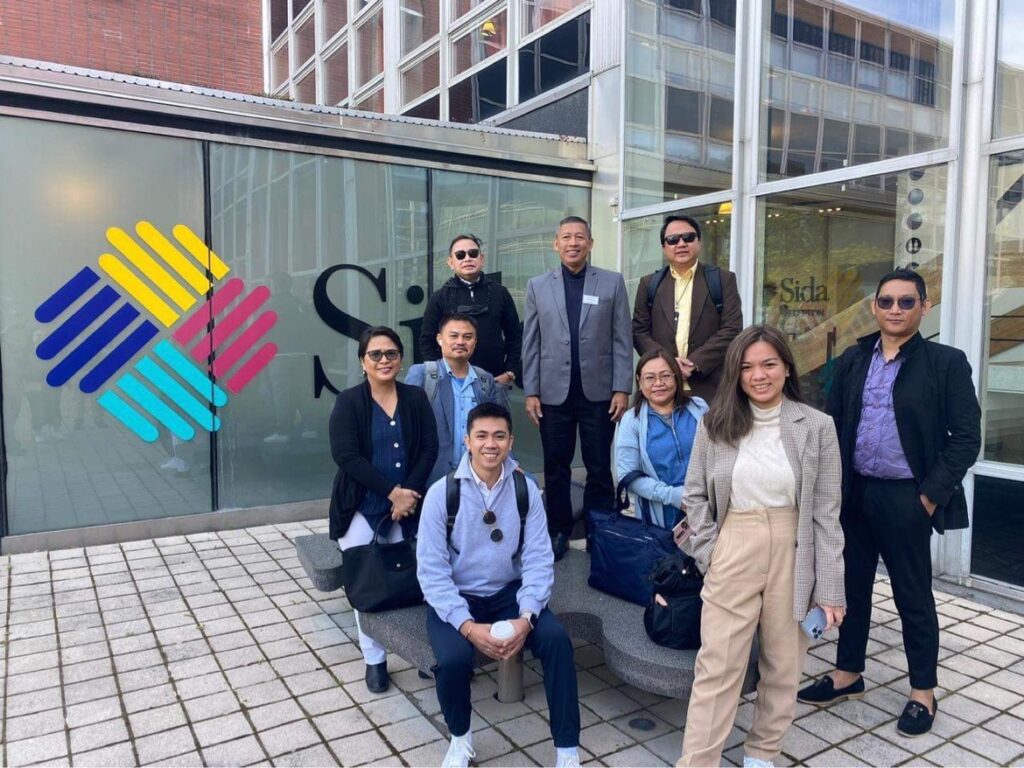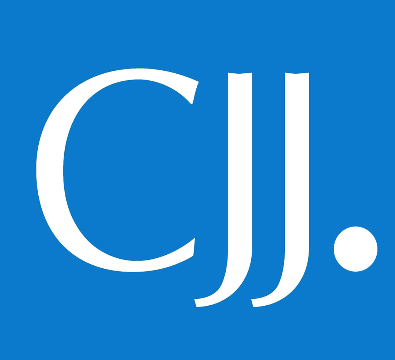Sweden has a media ombudsman and a media council to implement ‘self-regulation’

Joseph Tubilan, a Cebu Normal University (CNU) asst. professor and former journalist from Cebu, during a visit to Fojo Institute and Linnaeus University in Stockholm City, which “advocate for sustainable journalism in different parts of the world.” Tubilan represented Cebu Citizens-Press Council (CCPC) at an “international Training Program (ITP) on Media Regulation in a Democratic Framework.”
Sweden has a media ombudsman and a media council to implement ‘self-regulation’
JOSEPH ELVIR C. TUBILAN
December 2022
Joseph Tubilan, an associate professor at Cebu Normal University (CNU) in Cebu City, traveled to Stockholm City in Sweden May 14 to 28, 2022 as part of a year-long media training (October 2021 to October 2022). The program — called “International Training Program (ITP) Media Asia 2021-Media Development in a Democratic Framework” – is organized by Swedish International Development Cooperation Agency (Sida) through NIRAS Sweden AB.
The organizers invited the Cebu Citizens-Press Council (CCPC) to send a representative to the training. CCPC chose Tubilan, a former SunStar Superbalita [Cebu] news reporter, features editor and columnist.
Tubilan says it was the first time he visited Europe, specifically the Scandinavian area and the first time he traveled outside the Philippines, except for a trip to Hong Kong in 2006.
CCPC’s interest in the program was to see how the Swedish system of self-regulation can “support free and independent journalism” and how that compares with the Philippine system. Cebu Journalism & Journalists (CJJ) news-media magazine asked Tubilan, who holds a doctorate degree, to give a glimpse of the Swedish way of regulating the media.
Some excerpts from the material he filed:
SWEDEN has used its system of media self-regulation since 256 years ago. And it has been promoting the concept to other parts of the world interested in keeping the media “free and independent.”
Last May this year in Stockholm City, Sweden, during the International Training Program I was fortunate to join, organizers made clear what prompted the initiative: “Across the globe, recent political, technological, and economic changes have placed increased restraints on media freedom while at the same time the prevalence of fake news is on the rise.” Increasing limits on press freedom and rising incidents of fake news: those are the reasons for Sweden’s international media program.
The organizers see “an urgent need to find new ways to reform media policy and regulate the sector.” Regulation, self-regulation, and co-regulation of media are a means to that end, they believe.
‘OLDEST, MOST GENEROUS.’ Sweden Media Ombudsman Caspar Opitz says Sweden has the world’s oldest and most generous Freedom of the Press Act, established in 1766, two centuries and a half ago. Where ethical questions are not regulated in the Constitution. Opitz says, considerable responsibility is placed on individual newspapers, editors, and editorial offices — and so the media outlets have drawn up their own ethical rules.
After World War II, the press in Sweden changed character, shifting to the sensational style and focus, There was “a need, and political pressure,” to create more protection for the general public which resulted in the creation of the Press Ombudsman in 1969, which became Media Ombudsman (M.O.) in 2020 when broadcasting companies joined the system.
GOVERNMENT AUTHORITY. The M.O., according to Opitz, is a governmental authority, which is like a court that judges, convicts, and punishes media outlets for breaking the law of ethics. He says the M.O. prevents bad and weak journalism in general.
The Swedish Media Ombudsman strives to protect the public from “offensive and aggressive” journalism while media companies aim to protect freedom of the press and prevent “intrusion” by politicians and legislators.
The M.O. is the investigating authority: it acts on complaints from individuals who believe they’re unfairly treated by the media. The complainant must be personally affected by the damaging information about him.
The role of M,O. is to highlight the importance of good media ethics among the press and to educate the public. The ombudsman shall prevent legislation that tends to impair press freedom even as it curbs abuse or excess of media.

Tubilan adds the Philippine flag after sharing practices of Cebu Citizens-Press Council (CCPC) with co-participants in the training program on media regulations in Sweden .

The ITP Team Philippines that visited the Swedish headquarters of the Swedish International Development Cooperation Agency (SIDA). “Media Regulation in a Democratic Framework (ITP Media)” is a SIDA-financed training program that aims “to improve self-regulatory and regulatory frameworks for media.”
PROCEDURE. If the M.O. finds that a publication is subject to criticism, it submits the case to the Media Council (MC) for review and decision. If the MC decides that the publication shall be criticized for breach of ethics, the offending media outlet shall be required to publish a statement of the decision on the same space or platform of the offensive publication. The media is also obliged to pay a fee to the M.O. Companies, government authorities, and organizations shall also have the right to file a complaint. Sanction in such institutional complaints is the right to respond to a correction.
The task of the Swedish Media Council (SMC) is “to empower children and young people as conscious media users and contribute to protecting children and young people from harmful media influences.” It also monitors media trends and habits in children and young people and offers guidance on media use and film classification. SMC Head of Operations and Deputy Director Lotta Persson says that it is also the council’s responsibility as a governmental agency under the Ministry of Culture to coordinate with the Swedish Media and Information Literacy (MIL) in a program on national networking, mapping, reporting, and pooling of MIL resources. The council is responsible for the information on copyrights, implementation of children’s rights, and securing a safer internet center. 
